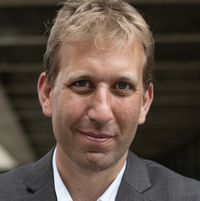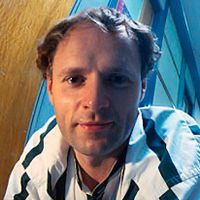New College, University of Oxford
Johns Hopkins University
Centre for Cosmological Studies
About the Project
We are now accepting applications for travel in 2025 / 2026
Cosmology is in a golden age of discovery, but a deeper understanding of what is meant by a science of cosmology, in the fuller reaches of these words, is in its infancy. It must involve astrophysics, physics, philosophy, and cosmogony, and tackle genuinely fundamental questions in cosmology.
This project focuses on areas of this kind which are currently the subject of much activity, and where Oxford and the partner institutions have particular research interests and strengths. Our work will involve both stimulating the pursuit of these questions in the longer term and by a larger audience, and researching fundamental issues in cosmology.
Areas of special interest will include the following, but applications are welcome from all those whose work is connected to cosmology in its broadest sense:
- Issues of measure, and beyond: to understand the requirements and possibilities for a probability ‘measure’ of the observed universe in some space of possibilities, including potential uses of anthropic reasoning;
- Cosmogony: to better understand how the universe began and evolved;
- The dark energy and dark matter problems: to understand the origin and value of the cosmological constant that appears to be responsible for the observed acceleration of the universe, and of the dark matter that constitutes the bulk of the matter in the universe;
- Entropy, time and complexity: To deepen our understanding of gravitational entropy and information in the universe, the various arrows of time, and the growth and measures of complexity in cosmology;
- Data science: To understand and develop new techniques for cosmology with the largest of data sets.
Goals: to provide grants for young researchers in cosmology and related subjects in frontier areas of research, and to establish international links involving leading young researchers to develop scientific interactions and collaborations that will benefit their careers as well as enhance the scientific life of the partner institutions. Key areas of research will include particle astrophysics, galaxy formation and evolution, the early universe, and the philosophy of cosmology. Applications from researchers in any of these fields are welcome.
The grants will provide for visits of between 2 weeks and 2 months at the partner institutions. Visitors will generally not overlap at any one institution. New College will be requested to host the equivalent of a non-stipendiary Visiting Junior Research Fellow (JRF). The visitors will be invited to give an interdisciplinary talk (aimed at a broad audience) as well as a departmental seminar on their research.
Partner institutions: New College, Oxford University and the Oxford Department of Physics, and the Johns Hopkins University (Department of Physics and Astronomy), with additional participation by Sorbonne University (Institut d'Astrophysique), Paris. The funding been generously provided by a Balzan Foundation Award to Joe Silk, supplemented by support from the Department of Physics, Oxford University and the Johns Hopkins University.
Organisation
-

-

-
 Prof Marc KamionkowskiAdvisory CommitteeDept of Physics and Astronomy, Johns Hopkins University
Prof Marc KamionkowskiAdvisory CommitteeDept of Physics and Astronomy, Johns Hopkins University -
 Prof John March-RussellAdvisory CommitteeDept of Physics, University of Oxford; New College Oxford
Prof John March-RussellAdvisory CommitteeDept of Physics, University of Oxford; New College Oxford -

-

Applications
Applications are especially welcomed from final year doctoral students and postdoctoral researchers who already have begun, or would like to initiate, collaborations with participating scientists at any of the host institutions. You are encouraged to make contact with potential host scientists before submitting your application. Funding is available for travel and living expenses for visits of up to two months.
In your application please include the following three files:
- CV (including publications).
- Description of proposed research project (4 sides maximum) - this should include details of your preferred host and their institution.
- Names and contact details of two referees.
When complete, please send all three files in a single email to Cigdem Arnison with the subject: "CCS Application: [your name]".
Applications for travel during 2025/26 will shortly be considered. Please submit by September 10th 2025 for full consideration. If you have any questions, please contact Cigdem Arnison.
Contact
General enquiries
For more information, general queries or to submit an application, please contact Cigdem Arnison:
Keble Road
Oxford
OX1 3RH
UK
Participating Institutions
Contact information for the participating institutions can be found at the following links:
- Astrophysics Dept, Oxford
- New College, Oxford
- Dept of Physics and Astronomy, Johns Hopkins University
- Institut d'Astrophysique, Paris
Host Scientists
Collaborative visits are welcomed by members of the hosting institutions including:
Oxford
Johns Hopkins
Institut d'Astrophysique
- Francis Bernardeau
- Francois Bouchet
- Stephane Charlot
- Marco Cirelli (LPTHE + IAP)
- Stephane Colombi
- Frederic Daigne
- Yohan Dubois
- Irina Dvorkin
- Kumiko Kotera
- Guillaume Lavaux
- Gary Mamon
- Jerome Martin
- Henry McCracken
- Roya Mohayaee
- Christophe Pichon
- Joe Silk
- Jean-Philippe Uzan
- Marta Volonteri
- Ben Wandelt